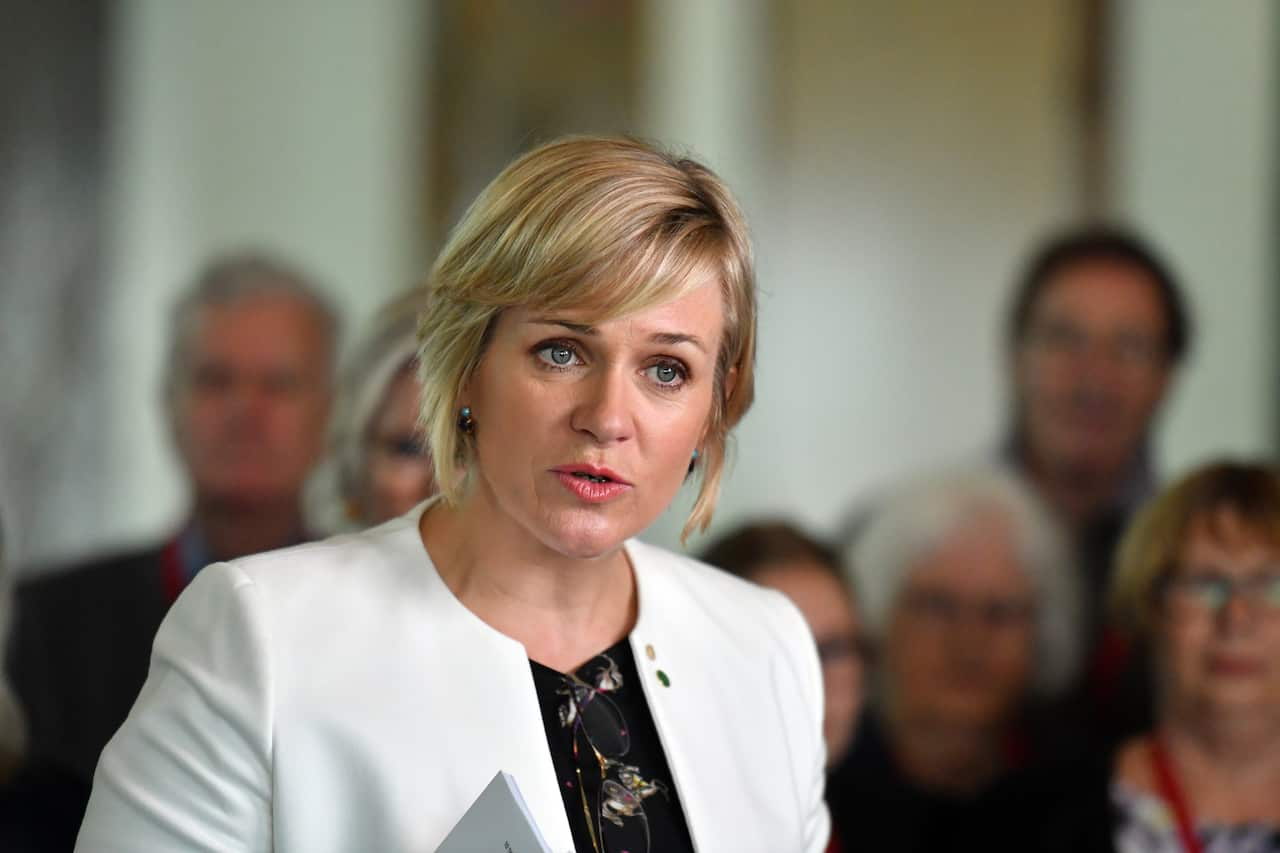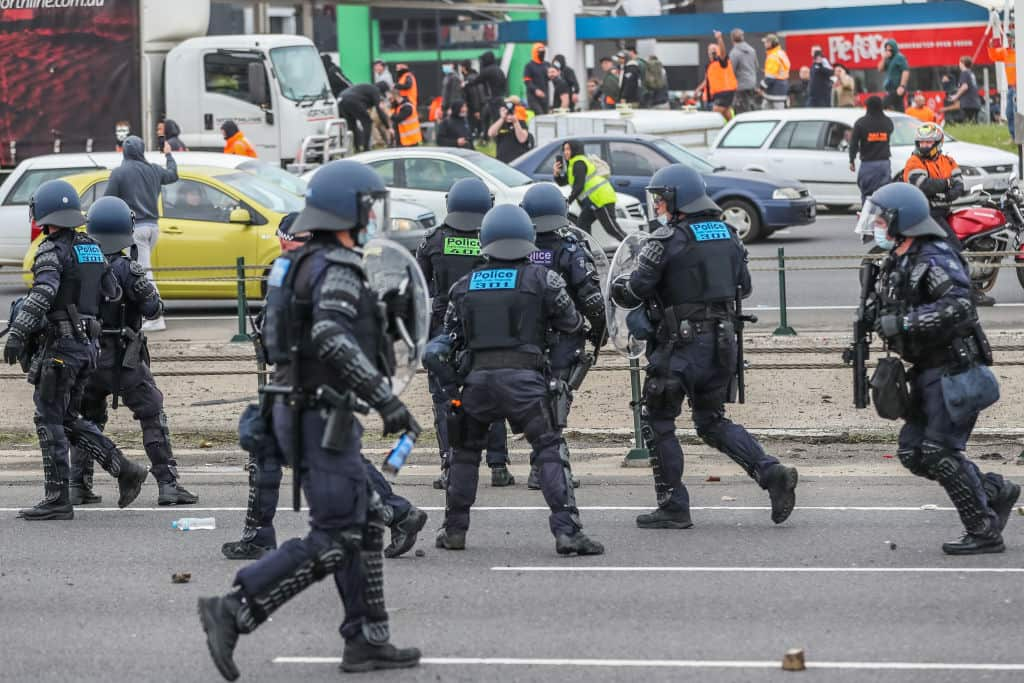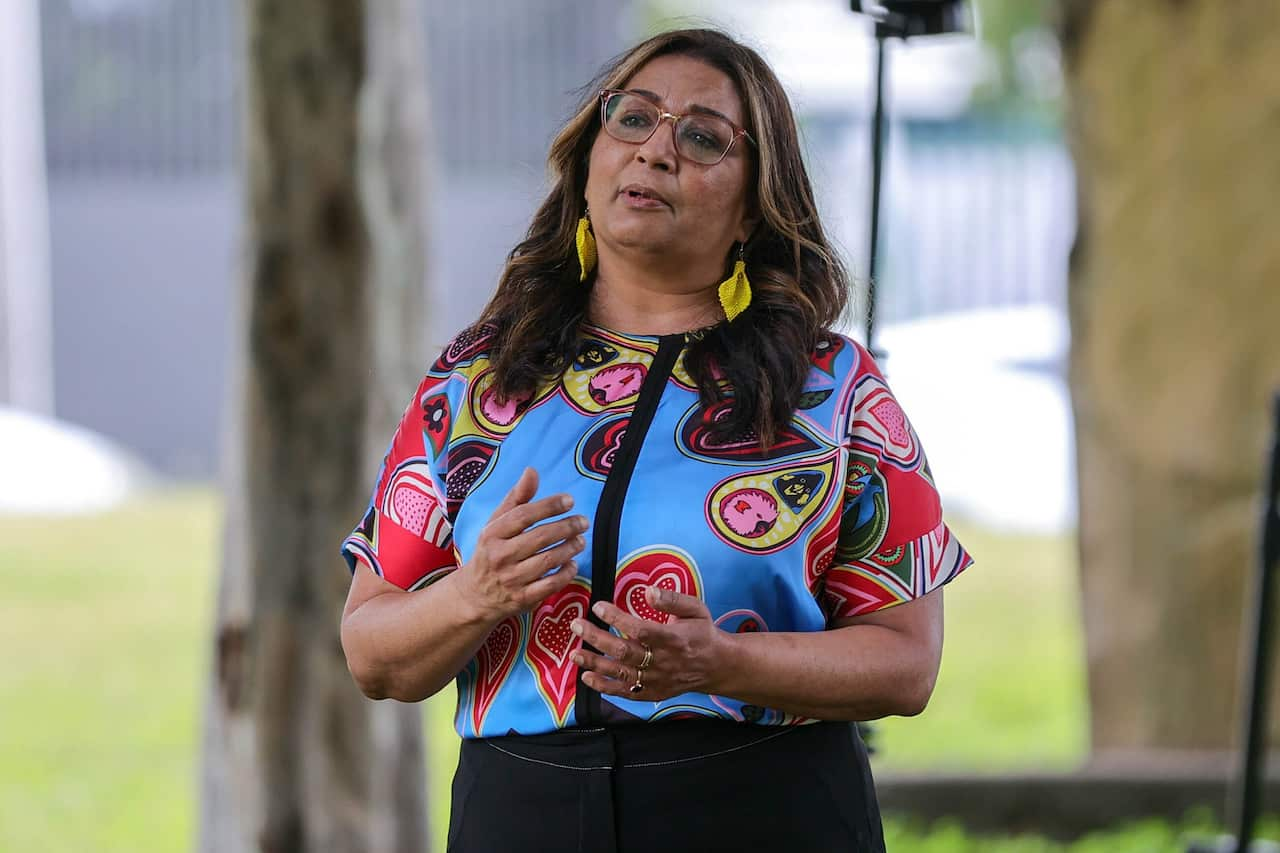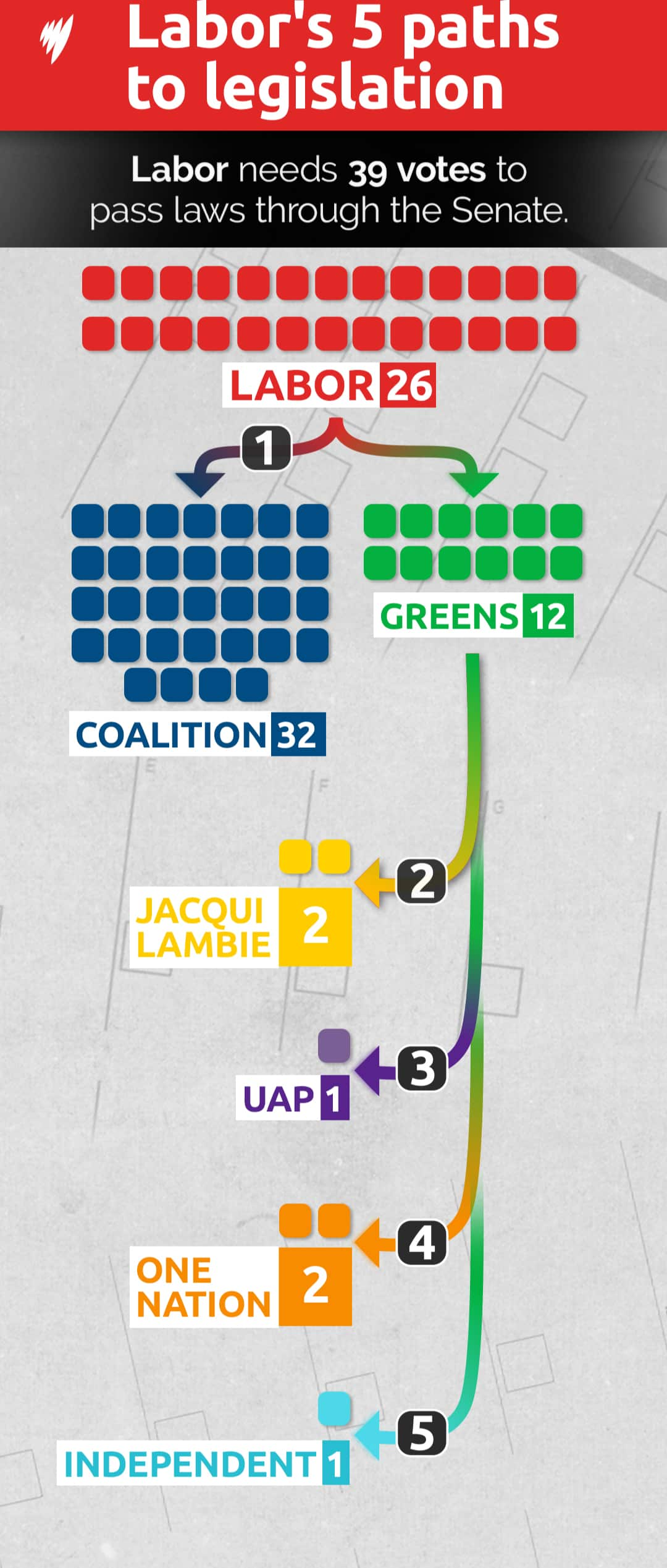KEY POINTS:
- There are calls for MPs falsely claiming election fraud to be fined.
- Independent Zali Steggall is reviving her ‘Stop the Lies’ Bill.
- The push comes after Brazilian rioters stormed government buildings.
Australian politicians who falsely claim election fraud could be fined and forced to publicly retract their statements, under an independent MP’s proposal being considered by federal parliament.
Supporters of former Brazilian president Jair Bolsonaro, in scenes reminiscent of in Washington DC two years ago.
And after anti-lockdown protests were marred by open threats to kill politicians in Melbourne, independent MP Zali Steggall is warning Australians not to become “complacent” about the strength of their own democracy.
“[You had] scaffolds and hanging nooses being pushed for public officials. That is incredibly violent and incredibly concerning,” she told SBS News.
“So I think it would be wrong to think that events occurring overseas, like in the US and Brazil, cannot happen in Australia.”
Independent Zali Steggall wants politicians who falsely claim election fraud to face fines. Source: AAP
To avoid that fate, Ms Stegall is part of a crossbench charge for sanctions on politicians who stoke election conspiracies without evidence.
But the plan could face roadblocks, with Labor non-committal and one key independent “not sure we’ve nailed the model”.
Ms Stegall is pushing a private members’ bill for truth-in-political advertising – the Stop the Lies Bill – before the Voice to Parliament referendum this year.
Some anti-lockdown protests spilled over into violence. Source: Getty / Asanka Ratnayake
She confirmed the bill – which includes fines of $14,000 for individual candidates, and $50,000 for political parties – would cover false accusations of election fraud on social media, provided they were “statements of fact” rather than “statements of opinion”.
That means a politician would be sanctioned for claiming a certain number of ballots had been stolen, but not for offering their opinion on Australia’s election processes.
“That’s really important, because freedom of speech [means] you have the opportunity to express your opinion. But you can’t publish statements of fact that are materially misleading,” Ms Steggall said.
‘Horrific consequences’
Deputy Election Commissioner Jeff Pope revealed a “notable increase” in false claims about election processes this year, which began “further in advance of a federal election than we’ve experienced previously”.
Mr Pope said the vast majority were spread on social media, including a “small number” made by political candidates themselves.
“As in other countries, false claims of voter fraud are on the rise in Australia,” he said.
“Our experience has been that many of these claims appear to have been copied and pasted from narratives used in other countries, usually without much thought for how realistic they might seem to an Australian reader.”
Greens senator Mehreen Faruqi warns of ‘horrific consequnces’ if false stolen election narratives are allowed to flourish. Source: AAP / Russell Freeman
The Greens have thrown their weight behind the idea, acting leader Mehreen Faruqi saying politicians have a “clear responsibility” to strengthen public trust in democracy.
“Democracy can’t work when false narratives about ‘stolen elections’ are promoted – either before or after the election has taken place – with no consequence to the politicians or candidates that spread them,” she told SBS News.
“The Greens will continue to push for an enforceable integrity code for all politicians that could sanction politicians who make baseless statements and undermine democracy.”
Australia Institute deputy director Ebony Bennett said polling showed around 90 per cent of Australians supported truth-in-political advertising laws, stressing corporations were already barred from engaging in misleading and deceptive conduct.
“There’s no reason to expect anything less from our elected representatives, political parties and candidates,” she said.
‘Gold standard’
Private members’ bills rarely pass parliament, with governments typically preferring to introduce their own version.
To pass through the Senate without the Coalition’s support, truth-in-political advertising needs backing from Labor, the Greens, and one other independent.
Independent senator Jacqui Lambie is “open to anything” preventing civic violence, but warned the definition of misinformation would “need to be pretty tight”.
“I’m not sure we’ve nailed the model here,” she told SBS News.
“Does this only apply to politicians, or also ex-politicians? High-profile public figures? Media commentators? Journalists? Social media influencers? Politicians aren’t the only people that are listened to, who’d have the power to spread false claims.”
Graphic showing votes Labor needs to pass legislation in the Senate.
Her fellow independent David Pocock supports “robust” truth-in-advertising laws, and said he would consult on any details put forward.
Labor in opposition broadly flagged its support for truth-in-political-advertising laws, which are being considered as part of a parliamentary inquiry called by Special Minister of State Don Farrell.
Senator Farrell described efforts to undermine democracy overseas as “incredibly disturbing”, but stopped short of committing to sanctioning politicians falsely claiming an election had been stolen.
“Australia’s electoral system is a gold standard, but can be strengthened,” he said.
“In the wake of growing deliberate and malicious disinformation, our free and fair system needs to be protected.”
But with Australians set to vote on the this year, Ms Steggall urged Labor not “let this moment in history” be marred by misinformation.
“It’s not enough for the government to [offer] support in principle. They need to find the political courage to do it now, early, when it’s needed,” she said.
What’s in the bill?
The independent initially brought her bill to parliament under the last Coalition government, but it lapsed before the 2022 federal election. She revived it this term, also attempting to expand it to include referendums ahead of the Voice debate.
The plan would see political ads making statements of fact that are “misleading or deceptive to a material extent” prompt fines of $14,000 for individuals, or $50,000 for corporations.
The powers, which would be enforced by the Australian Electoral Commissioner, could also compel public retractions. They would not be retrospective.
***
This article has been archived for your research. Find the original article
here.






